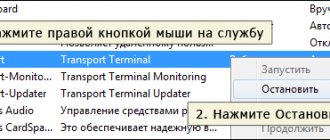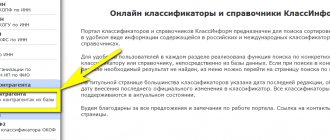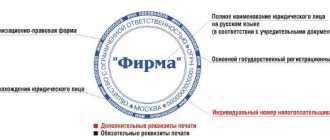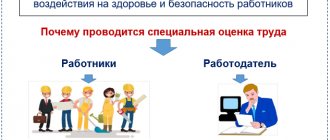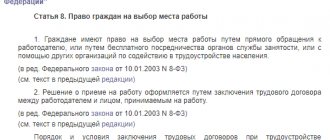Many organizations use the services of individuals: some employ a copywriter, others a designer, and still others a private person engaged in foreign economic activity. Such cooperation is formalized in two ways:
- They work illegally
. The contract is not drawn up, the employee is not listed on the staff, and the payment is transferred to the card. Everyone is happy. The organization saves 30% on salary taxes and personal income tax, and the employee receives the entire amount without deductions and does not report to the state. - Conclude a civil law agreement
. The organization pays contributions to the Pension Fund and the Compulsory Medical Insurance Fund, and 13% of personal income tax is withheld from the individual.
However, from January 1, 2020, a tax on professional income or “tax for the self-employed” came into force. Now you can work with such employees openly and not pay taxes. You will learn how to do this and what documents to prepare in this article.
What about the official list of activities for the self-employed?
The concepts of “self-employed” or “self-employment”, despite their widespread use, including in official letters from government bodies (in particular, the tax service), are not enshrined in law.
This terminology began to be used after the adoption of the law “On Amendments to Articles 2 and 23 of Part 1 of the Civil Code of the Russian Federation” dated July 26, 2017 No. 199-FZ.
Paragraph 2 p. 1 art. 23 of the Civil Code of the Russian Federation from now on allows a citizen to carry out entrepreneurial activities without registering as an individual entrepreneur. At the same time, the conditions for running such a business must be separately provided for at the legislative level.
Based on this norm, the law “On Amendments to Part One of the Tax Code...” dated December 27, 2018 No. 546-FZ was adopted. His Art. 2 establishes that individuals can carry out entrepreneurial activities without registering an individual entrepreneur if it falls under the list of self-employed activities for 2020 established by paragraph 70 of Art. 217 Tax Code of the Russian Federation.
This list was introduced by Law No. 401-FZ of November 30, 2016, amending the Tax Code. This law on the types of activities of self-employed citizens in 2020 still remains relevant.
Taxes for types of activities of self-employed citizens in 2020 are established separately. Subp. 6 paragraph 2 art. 18 of Law No. 401-FZ, as an experiment, provides for such a special tax regime as a tax on professional income.
In addition, a separate law was adopted “On conducting an experiment to establish a special tax regime “Tax on professional income” in the federal city of Moscow, in the Moscow and Kaluga regions, as well as in the Republic of Tatarstan (Tatarstan)” dated November 27, 2018 No. 422-FZ .
List
A complete list of activities of self-employed citizens for 2020 is still missing; not a single legislative norm contains an exhaustive list of them. So, in paragraph 70 of Art. 217 of the Tax Code lists some types of professional activities, during which a citizen may not register as an entrepreneur.
However, this list is not exhaustive, since the same norm allows it to be supplemented at the level of regional legislation.
Thus, the law of a constituent entity of the Russian Federation may establish a regional list of activities of the self-employed population in 2020 in addition to the federal one.
In the mentioned law No. 422-FZ, on the basis of which the experiment on professional tax is being carried out, there is no list at all. It only provides a definition of professional income (Part 7, Article 2). It refers to the income of an individual that he receives in the absence of his boss (employer) and does not himself act as an employer. This is also income from the disposal of property (for example, from renting out residential premises).
Taxes when working with self-employed people
Recognition in tax accounting of costs for the purchase of goods (work, services) from self-employed people depends on the taxation system used by the customer. Next, we will understand the nuances of tax accounting for such costs for business entities under OSNO and special regimes.
1. Income tax.
An organization that uses the general taxation system, when purchasing goods (work, services) from self-employed people, can take these costs into account in tax accounting if the following requirements are simultaneously met:
- the costs are justified from an economic point of view;
- the goods (work, services) received are used for commercial (economic, production) activities;
- expenses are documented.
The economic justification of expenses is determined by the correspondence of their cost to average prices on the market, as well as the need to use the purchased goods (works, services) in commercial activities.
As for documentary evidence of such expenses, it is necessary to rely on the letter of the Federal Tax Service No. SD-4-3/2899. Tax officials believe that organizations on OSNO can take into account the costs of self-employed services when calculating income tax, subject to two conditions:
- existence of a contract;
- the contractor issued a check to the customer and reflected the funds received for the provision of services in accounting.
Self-employed - changes in 2020:
Regarding the nuances of concluding an agreement with a self-employed person, as already mentioned, the tax service considers both written and oral forms acceptable. But when legal entities work with self-employed people, it is necessary to conclude an agreement in writing, and sometimes it is necessary to notarize it.
Confirmation of the completion of work is an act signed by both parties in accordance with the terms of the contract. Regarding the accounting of income received by a self-employed person, the Federal Tax Service is of the following opinion: when receiving income, the taxpayer must indicate it in the “My Tax” application, then provide the customer (buyer) with a receipt.
Therefore, as documentary evidence that is necessary for tax accounting of costs, the customer organization must have: a written agreement (if necessary, notarized); a certificate of completion of work (services provided) signed by both parties or an invoice confirming the delivery of goods; a check generated by the contractor through the “My Tax” mobile application.
2. VAT.
The conditions for using the special NPA regime exempt self-employed people from paying VAT. Therefore, they are not required to issue invoices. Consequently, if the customer is a legal entity on OSNO, then he does not have the opportunity to deduct VAT and thereby reduce the tax base.
A situation may arise when a legal entity has entered into an agreement with an individual entrepreneur who is a VAT payer, who over time received the status of self-employed. In such circumstances, until the individual entrepreneur becomes a tax payer, the entrepreneur must issue invoices, and the legal entity - the customer has the right to deduct VAT. After receiving self-employed status, the parties must enter into an additional agreement to approve the new price without VAT.
Let's go from the opposite: who cannot be self-employed
To understand who can become self-employed by type of activity, it is necessary to refer to the norms of the Tax Code, as well as regional legislation in this area. In Law No. 422-FZ, instead of listing these species in Part 2 of Art. 4 provides only a list of cases when the application of the “Professional Income Tax” regime is not allowed.
Since the law was adopted at the federal level, when developing a regional law approving the list of activities of self-employed citizens, this norm must be taken into account.
So, it is impossible to register as a self-employed individual and apply the “Professional Income Tax” tax system in the regions specified in the law if:
- the entrepreneur’s activities are related to the sale of goods that, in accordance with current legislation, are excisable or subject to special labeling;
- a person resells goods;
- an individual is engaged in the extraction of minerals and their further sale;
- there are hired workers with whom the individual has entered into an employment relationship through the conclusion of relevant contracts;
- a person in the current calendar year receives income in the amount of more than 2 million 400 thousand rubles;
- carries out business activities in the interests of other persons.
Advantages of working with self-employed people
The main advantage of working with the self-employed for enterprises and individual entrepreneurs is minimal taxation. First of all, you save up to 30% on insurance premiums compared to working with full-time employees or individuals under a civil contract. Also, legal entities and individual entrepreneurs do not need to transfer personal income tax to the budget from funds paid to the self-employed.
Self-employed persons do not need to pay this tax in terms of income subject to taxable income tax. Work with a legal entity in the amount of 6% of the NAP is paid personally by the self-employed. The tax inspectorate determines the taxable base and calculates the tax based on what is stated in Art. 11 No. 422-FZ order.
What remains: representatives of which professions can be self-employed
To understand what a self-employed person can do in 2020, you should first refer to paragraph 70 of Art. 217 NK. On its basis, this category of entrepreneurs includes persons carrying out the following activities or having the following professions:
- nannies (supervising and caring for minor children);
- caregivers for elderly people over 80 years of age;
- people looking after and caring for sick people and other persons whose outside care is required on the basis of a medical report from a specialized organization;
- tutors (not deciphered by law, due to practice, persons who provide training in any area privately outside educational institutions);
- cleaners or maids providing cleaning services to individuals outside of cleaning companies;
- persons running a household (this term is not specified; this may include any housework, cooking, delivering groceries from the store, walking pets, etc.).
If we turn to Part 7 of Art. 2 of Law No. 422-FZ, we can conclude that professional income is income from the use of property. This type of activity refers to self-employment to the extent that it is not carried out as a business activity.
For example, a citizen rents out residential premises that belong to him on a one-time basis. If a person has many residential premises and regularly rents them out, this activity will already require registration as an individual entrepreneur.
What conditions are provided for obtaining and maintaining self-employed status?
If there are no clear definitions in the permitted list, then the restrictions are indicated in clear paragraphs in Federal Law No. 422. So, the NPA tax regime cannot be used in the following cases:
- When a person’s annual income exceeds 2.4 million rubles.
- If there are employees under an employment contract.
- If the activity is not localized in the experimental area. Let us remind you that for now the law for the self-employed is valid only in Moscow, the Moscow and Kaluga regions, as well as in Tatarstan.
- Even within these 4 regions, changing location is allowed once a year.
- The work that is subject to NPA does not fall within the scope of activity of an individual entrepreneur. It does not require mandatory registration in this status, which, by the way, does not apply to privately practicing lawyers.
- In business relationships where the self-employed person is himself a mercenary under an employment contract, he does not have the right to apply NAP, although it can be combined with additional earnings as a self-employed person.
- You cannot register self-employment selling alcohol, tobacco, medicines, or other excisable products.
- If the activity is related to mining.
- When reselling goods and rights, with the exception of leasing (renting) your own home.
- Representatives of other persons on the basis of an agency agreement, except for those who deliver products without using cash registers.
- A different taxation regime has been established for individual entrepreneurs.
- With income from financial instruments - shares, securities, deposits.
- If a current or former employer within 2 years tries to transfer the employee to self-employment and enter into a GPC agreement with him.
That is, it turns out that there are no direct indications that a lawyer does not have the right to become self-employed. But in fact, such provisions have been found in the law; let’s talk about them in more detail below.
Even a self-employed hairdresser is faced with facts that prevent the use of NAP.
How to understand whether I fall under the concept of a self-employed citizen
Since there is still no official comprehensive list of self-employed professions in 2020, some legislative criteria will help to understand whether a citizen falls under the concept of self-employed:
- there is no employer;
- no hired workers are involved;
- the person does not belong to any of the categories mentioned in Part 2 of Art. 4 of Law No. 422-FZ.
In addition, to be recognized as self-employed, a person must register with the tax authority. Accounting is of a notification nature; after receipt of the notification by the tax authority, registration is carried out. The tax authority itself will notify the applicant if the activity carried out by him does not fall within the definition of self-employment.
Relationship between individual entrepreneur and self-employed
Long-term cooperation between a company and self-employed citizens is attractive for a number of reasons:
- The relationship is limited to getting the job done and getting paid for it. That is, upon receiving a job, the entrepreneur pays a salary to the self-employed.
- All tax reporting falls directly on the self-employed. The citizen records and pays all income and taxes himself.
- Simplify documentation when collaborating. The company and the self-employed can cooperate either through an oral or written agreement.
- There is no connection to the territory. The employer may be located in one region, and the contractor in another. For example, it will be cheaper to hire a freelancer in the Kaluga region than in Moscow.
To ensure that individual entrepreneurs and LLCs do not illegally try to reduce tax and personal income tax payments for employees by transferring them to self-employment, the state introduced an additional law. It states that a dismissed employee can be employed by the same company as a self-employed worker two years after dismissal.
For cooperation between a law firm and a self-employed citizen, it is recommended to draw up a written civil law agreement to avoid misunderstandings. For example, from the employer’s side - so that the work is completed on time and meets the required parameters. On the part of the employee - so that the amount of payment corresponds to the promised monetary reward.
In order to avoid fines and additional insurance premiums from the tax authorities, a legal entity, a self-employed citizen, when concluding an agreement with a legal entity, should attach a certificate of self-employment. So that the contract is not regarded as an employment contract.
***
Thus, in the current legislation there is no single exhaustive list of types of activities in the implementation of which a person is recognized as self-employed.
However, tax and other legislation provides some types of professional activities, as well as criteria that allow one or another activity to be classified as self-employment. You can find more complete information on the topic in ConsultantPlus. Full and free access to the system for 2 days.
What types of services can a self-employed person provide to a legal entity?
There is no specific list of activities that self-employed people can engage in in laws and codes. Freelancers have the right to provide legal entities with a wide variety of services, from repairing household appliances and electronics to acting as a coach and presenter of seminars, programs, and events.
The most popular types of such services are:
- design activities, including interior design, landscape design, web design;
- copywriting services and filling websites with the necessary content;
- programming services;
- administration of social networks;
- conducting marketing campaigns and SEO promotion;
- photo and video shooting.
The services of builders and finishers working on a self-employment basis are quite popular.
Important! Lawyers, mediators, notaries, arbitration managers, and valuation specialists cannot be self-employed.
Who can switch to a special tax regime
This can be done by individuals and individual entrepreneurs who operate on the territory of the constituent entities of the Russian Federation included in the experiment.
By choosing a special regime for the self-employed, you can engage in those types of activities, income from which is subject to professional income tax, but without the need to register as an individual entrepreneur.
These types of activities include:
- provision of cosmetic services at home
- photo and video shooting to order
- sales of own products
- holding events and celebrations
- legal advice and accounting
- remote work via electronic platforms
- renting an apartment daily or long term
- passenger and cargo transportation services
- construction work and renovation of premises
Also, some foreign citizens have the right to become self-employed, namely citizens of Belarus, Armenia, Kazakhstan and Kyrgyzstan. They can apply the tax regime under the same conditions as Russian citizens.
What is recognized as the place of business of a self-employed person?
This is the location of the taxpayer when carrying out activities. An individual notifies the tax office of the place of business when switching to the use of a special regime.
What rules apply in this case:
- if a self-employed person operates in the territories of several constituent entities of the Russian Federation, then he has the right to independently choose the subject in whose territory he conducts activities;
- the place of business can be changed only once per calendar year;
- if a self-employed person ceases to operate on the territory of the selected entity, then for the purposes of applying the special regime, he selects another entity included in the experiment, on the territory of which he operates, no later than the end of the month following the month of such termination;
- when changing the place of business, an individual is considered to be operating in the territory of another entity starting from the month in which he chose this entity.
What else is important for transaction participants to know?
To avoid abuse, parliamentarians excluded a number of incomes from the special regime (Article 6 of Law 422-FZ). Individuals and entrepreneurs do not have the right to include in the calculation base for NAP:
- remuneration under employment contracts;
- fees for the sale of real estate and transport;
- amounts received as a result of the assignment of rights to capital structures or land plots (with the exception of rent and rental housing);
- proceeds from the sale of household items or personal belongings;
- income from the sale of securities, shares in the capital of business companies;
- remuneration under partnership agreements, trust management, assignment.
It will not be possible to switch to self-employment with mediators, notaries, and lawyers. The ban also applies to insolvency practitioners.
The proposed system can be considered successful. Statistics testify to the effectiveness of the project. The Russians began to actively emerge from the shadows. By the end of 2020, more than 330 thousand people were registered in only four regions of the country. Expansion of the experiment should lead to a noticeable increase in regional budget revenues.
However, the program also has obvious shortcomings. Thus, federal law does not mention bankruptcies. The document contains no direct prohibitions on registration for persons previously declared insolvent. Failure to do so threatens the entry of unscrupulous participants into the market. That is why legal entities should not neglect checking potential partners .
The experiment is designed for 10 years. During this period, legislators do not plan to increase rates or change the accrual system. But the approach to the issue of pension insurance may well change. The problem with the accumulation of funds in individual personal accounts of the Pension Fund of Russia has not been resolved. The state's policy in this area is no different.
Tax rate for self-employed
A self-employed person pays 4% in respect of income received from the sale of goods or services to individuals, and 6% in respect of income received from the sale of goods or services to individual entrepreneurs (for use in conducting business activities) and legal entities.
Officials guaranteed that conditions would not worsen for 10 years. “No changes can be made that worsen the payer’s situation, either from the point of view of the rate or from the point of view of the level of income,” said Chairman of the Committee on Budget and Taxes Andrei Makarov, co-author of the law on the self-employed.
Algorithm for calculating and paying tax on professional income
No later than the 12th day of the month following the expired tax period, the tax office sends a notification to the self-employed person through the “My Tax” application about the amount of tax that needs to be paid. The notice already contains the details necessary for payment.
Tax payment is made:
- no later than the 25th day of the month following the expired tax period;
- at the place of business.
There is no need to submit a tax return.
If a self-employed person does not meet the deadline, the tax office, no later than 10 calendar days from the date of expiration of the tax payment deadline, sends him demands for tax payment, as well as information about measures to collect the tax.
The tax amount is calculated as a percentage share of the tax base corresponding to the tax rate, and when different rates are applied - as the amount obtained by adding the amounts of taxes calculated separately as percentage shares of the corresponding tax bases corresponding to the tax rates, taking into account the reduction of the corresponding tax amount by the amount of the tax deduction .
If the amount of tax that must be paid at the end of the tax period does not reach 100 rubles, then this amount is added to the amount of tax payable at the end of the next tax period.
The taxpayer can set up the tax payment process so that the required amount is debited from the bank account. To do this, in the mobile application you need to provide the tax authority with the right to send relevant instructions to the bank.
Tax base and tax period
The tax base is the monetary expression of income received from the sale of goods or services, which is subject to taxation. It is determined separately by type of income, for which different tax rates are established.
In order to determine the tax base, income is taken into account on an accrual basis from the beginning of the tax period.
If the taxpayer returns amounts previously received as payment (advance payment) for goods or services, the income of the tax period in which the income was received is reduced by the amount of the refund.
A taxpayer may correct previously submitted information about the amount of settlements that lead to an overstatement of tax amounts in the following cases:
- if a refund is made of funds received as payment (advance payment) for goods or services;
- if the information is entered incorrectly.
The amount of overpaid tax is subject to offset against the taxpayer's upcoming payments, repayment of arrears, arrears of penalties and fines for tax offenses only for professional income tax or is subject to refund in the manner prescribed by Art. 78 Tax Code of the Russian Federation.
The tax period is a calendar month.
Official clarifications on the application of tax for self-employed people
State Duma deputy Andrei Makarov emphasizes that “the law provides a right, but does not impose obligations.” It “does not establish any additional tax audits or the possibility of catching anyone for tax evasion.” The existence of this law provides people with a convenient opportunity to fulfill their constitutional obligation to pay taxes and fees.
On the official website of the State Duma, Andrei Makarov gave explanations on numerous questions that come from citizens.
Are those who provide one-time assistance considered self-employed?
Do not apply. The fact of regular provision of services is fundamental: for example, you help people dig up their gardens and make money from it. However, if you once helped a neighbor dig up a garden, this will not be considered the provision of services.
Can an individual entrepreneur re-register as self-employed?
Maybe if he considers that this mode is more profitable for him. But the main goal of the law on self-employed people is to allow people who are not yet registered to leave the “gray zone”.
Will self-employed people be able to obtain income certificates to purchase government guarantees and benefits?
They can, like any citizen.
Where will the tax money go?
They will go to the regional budget at the location of the activity. Regions will be able to distribute them and send part of the income to municipalities.
“And this is very important for the regions. Because today the regions make payments to the Compulsory Health Insurance Fund for the non-working population. As soon as a person leaves the “gray” zone, 1.5% of the tax he paid will be credited to the Compulsory Medical Insurance Fund, and the region will no longer pay for it to the Compulsory Medical Insurance Fund,” notes Andrei Makarov.
Where should a self-employed person register if he operates in several regions?
He can choose the region most convenient for him to register. You do not need to register in all regions.
Explanations on this issue are also given in the Letter of the Federal Tax Service of the Russian Federation dated February 21, 2019 No. SD-4-3/ [email protected]
Comments by Gaik Safaryan, partner in the tax practice of CMS, Russia
About designers working with foreign stock platforms. Are they covered by the self-employed law?
This type of business activity will also be subject to the new tax regime.
The fact of performing work or providing services in favor of a foreign person does not matter for the purposes of calculating and paying income taxes, since the object of taxation is income from sales. Depending on the characteristics of the final buyer of goods (works, services), taxpayers of the professional tax will be required to apply one or another tax rate (4% for sales to individuals and 6% for sales by organizations or individual entrepreneurs).
It should be noted that taxpayers of professional income tax when selling goods (works, services) using intermediary mechanisms should pay special attention to identifying the final buyer.
About the benefit provided for companies purchasing goods from self-employed people or using their services. How exactly will this work?
The law provides that payments by organizations or individual entrepreneurs to individual taxpayers of professional income tax for goods, works, and services sold, taken into account in the tax base, are not recognized as subject to insurance premiums. Thus, corporate taxpayers will have the opportunity to reduce the base for taxation of insurance premiums when purchasing goods (works, services) from self-employed people.
How to switch to professional income tax from other special regimes
Explanations on this issue are given in the Letter of the Federal Tax Service dated December 26, 2018 No. SD-4-3/ [email protected]
Individual entrepreneurs using the simplified tax system, unified agricultural tax, and UTII can switch to paying tax for the self-employed by notifying the tax office within a month from the date of registration as a payer of this tax.
You can switch to the above special regimes if you lose the right to apply tax on professional income. To do this, you need to notify the tax office within 20 calendar days from the date of deregistration as a payer of this tax.
Penalty for self-employed
With all the privileges and benefits, the self-employed need to prepare for fines in case of failure to pay tax on professional income. It is assumed that the amount of the fine will be the amount of income that the self-employed person receives.
The fine is provided only for those who registered as self-employed, but violated the conditions for issuing a check.
As part of the pilot project, for violation of the procedure or deadlines for the generation of fiscal checks during settlements, a fine of 20% of the amount for which the check was not issued will be charged. Repeated violation within 6 months involves a fine in the amount of the entire settlement amount for which a check has not been generated.
In 2020, the Federal Tax Service expressed its readiness not to apply sanctions against the self-employed in the first year of the experiment.






